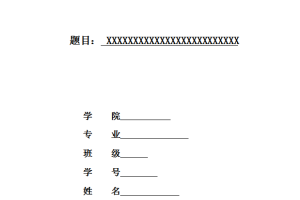摘 要: 随着全球经济发展水平的不断提高和经济全球化的不断深入,跨境交付、境外消费、商业存在和自然人流动等各种形式的服务贸易活动愈显频繁,服务贸易已然成为世界贸易的重要组成部分。本文通过对广东省对外经济发展以及服务贸易的发展数据进行定量分析和研究,得出广东省服务贸易发展的优势与劣势,分析了服务贸易在广东经济中的地位与作用。 再以波特的钻石理论模型为基础,对影响广东省服务贸易发展的因素进行定性分析,针对服务贸易起步较晚,服务业发展基础薄弱,水平相对落后的基本情况,提出对策。
关键词: 服务贸易;比较优势;竞争优势
Abstract
Abstract: With the development of global economy and continuously improve the level and the continuous deepening of economic globalization, cross-border supply, consumption abroad, commercial presence and movement of natural persons and other forms of service trade activity increasingly frequent, service trade has become an important component of world trade. Services trade and goods trade history as the history long, it with the national economy, especially the development of trade in goods and development. A period of technology and productivity development level determines the period of service industry and service trade development level; either the free trade in goods and services trade liberalization, is mainly by the time major trading country national interests, and these countries national interests and is mainly composed of its domestic dominant the interests of the decision. The research of service trade has attracted attention of scholars at home and abroad. But because of China’s service trade development started relatively late, the service trade research is still in the initial stage, have draw lessons from the foreign research methods and experience.
Key words: Service trade; Comparative Advantage; Competitive Advantage
目 录
Abstract:………………………………………………….. II
1.1选题的目的与意义……………………………………….. 1
1.2.1国外相关研究现状文献综述……………………………. 1
1.2.2国内相关研究现状文献综述……………………………. 2
1.3研究的主要内容与方法……………………………………. 3
2.广东省对外经济发展现状……………………………………… 5
2.1广东省进出口发展概况……………………………………. 5
2.2.1服务业发展步伐明显加快……………………………… 6
2.2.2服务业所占经济总量比重偏低,制造业仍占主导地位………… 6
2.2.3 行业和地区发展差距明显…………………………….. 8
3.广东服务贸易与经济发展的实证分析…………………………….. 9
3.1广东省服务贸易的钻石模型分析…………………………….. 9
3.2广东省服务贸易促进经济发展的实证研究…………………….. 10
4.广东省服务贸易发展的对策……………………………………. 12
4.1要制定刚柔结合的服务贸易保护政策………………………… 12
4.2巩固传统市场,打开新兴市场……………………………… 12
4.3转变观念,高度重视服务业的发展………………………….. 13
4.4加强服务贸易管理………………………………………. 13





